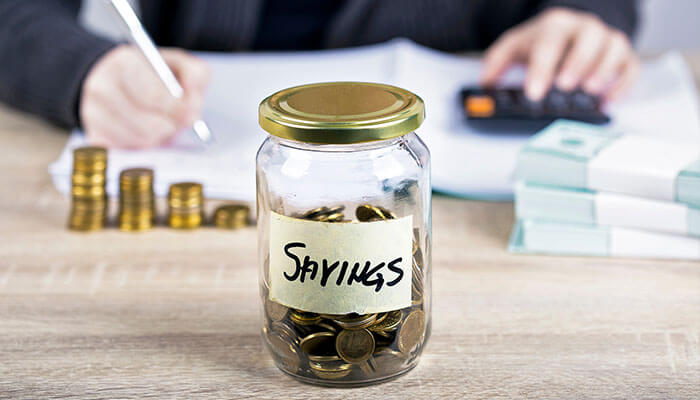How can you possibly learn how to prepare for a financial emergency?
If you prepare for a financial emergency in advance, you can mitigate the damage and bounce back much quicker. After all, a proper financial emergency plan lays out the steps you need to take, making it almost as if you were in an action movie.
In this article, we’ll go over the steps you’ll have to take in the event of a financial emergency. Read on and get ready to be prepared for what life throws at you.
Assessing Your Financial Risk
To best prepare for the worst, it’s important to assess your financial risk. Start by assessing your loan, income sources, expenses, and emergency savings. Calculate all expenses, such as rent, utilities, food, and other bills.
Assess how much of your income goes towards your essential bills and how much you have left for nonessentials such as entertainment and luxuries. Calculate your emergency savings by assessing how much income you can put aside in an emergency.
Establishing an Emergency Fund
Start by creating a budget and tracking your spending. Knowing how you currently use and allocate money will help determine how much can be allocated monthly toward an emergency fund. Decide how much you save towards emergency finances each month: as little as $20 a month can add up over time.
Consider learning about investing and creating an account to invest a portion of your emergency fund to help it grow. Choose emergency loans Canada and set up a dedicated account for your emergency fund.
Creating a Budget and Allocating Savings
Make sure to include fixed expenses, such as rent or mortgage payments, and variable expenses, such as groceries and entertainment. Next, determine your financial goals, such as paying off debt or saving for retirement.
Then, decide how much your income should be saved each month and establish a reasonable and reasonable budget. Make sure to allocate money for emergencies, such as medical bills or car repairs, by setting aside money specifically for those events.
Setting up an Emergency Plan
Setting up an emergency plan is key when preparing for a financial emergency. Assess your current financial situation and determine how much you can save each month.
Then, identify nonessential expenses you can eliminate, such as subscription services. Consider signing up for a high-yield savings account that could offer a higher interest rate.
Additionally, research low-risk investments such as stocks or mutual funds and decide which ones to invest in. Have a plan of action in case you need to sell your investments.
Finally, create a budget for yourself and stick to it. Remember that emergencies can happen anytime, so it’s important to be prepared. With a well-developed plan and forethought, you’ll be able to navigate any financial emergency.
Learning to Adapt to Shifting Financial Situations
Conducting a thorough financial assessment of your current income, expenses, and available assets is important. Finally, it is important to recognize when external elements significantly impact your finances.
This could include changes in the job market, shifts in the stock market, or inflation. To successfully adapt to a financial emergency, you need to stay up-to-date on economic changes and how to adjust your finances accordingly.
Review Your Insurance Coverage
When reviewing your coverage, you should go through your policy or contact your insurance company to see what emergency expenses coverage covers. These may include emergency medical expenses, property loss, or other financial issues such as job loss or disability.
Ensure you understand your coverage, its limits, and your premium payments. It is also important to review the overall cost of your coverage and ensure that it is still in line with your income and its limits. Taking the time to review your insurance coverage thoroughly will help you be properly prepared for a financial emergency.
Keep Important Records Safe
If you’re preparing for a financial emergency, it’s important to keep important records safe. Make sure you have copies of important documents like your bank statements, credit card bills, tax returns, and so on.
Keep the original copies in a safe and secure place, such as a locked filing cabinet or a fireproof safe, and keep electronic backups on an external hard drive or USB stick. If you store documents online, ensure they are properly encrypted and password-protected.
Make a list of key contact information, including bank and investment contacts, insurance policies, creditors, loan details, etc. Also, ensure you have access to your online banking if you need to make any changes.
Keep Cash in a Secure Place
Preparing for a financial emergency is essential, especially when it comes to ensuring that there is money available when needed. One of the best ways to prepare for a financial emergency is to keep cash secure.
This could include a safe in the house, a safe deposit box at the bank, or a secure online account. When deciding which option to choose, it is important to prioritize security. Store cash in a place that is not easily accessible, and makes sure to change your combinations or passwords regularly.
Read More About Financial Emergency
In conclusion, financial emergencies come without warning and can be devastating. But, with the right preparation and planning, you can avoid financial disaster.
By reading more about financial emergency preparedness, you can better understand the best ways to avoid or cope with a financial emergency. Explore these options today to ensure you are ready for whatever comes your way.
Did you find this article helpful? Check out the rest of our blog for more!
How can you possibly learn how to prepare for a financial emergency?
If you prepare for a financial emergency in advance, you can mitigate the damage and bounce back much quicker. After all, a proper financial emergency plan lays out the steps you need to take, making it almost as if you were in an action movie.
In this article, we’ll go over the steps you’ll have to take in the event of a financial emergency. Read on and get ready to be prepared for what life throws at you.



